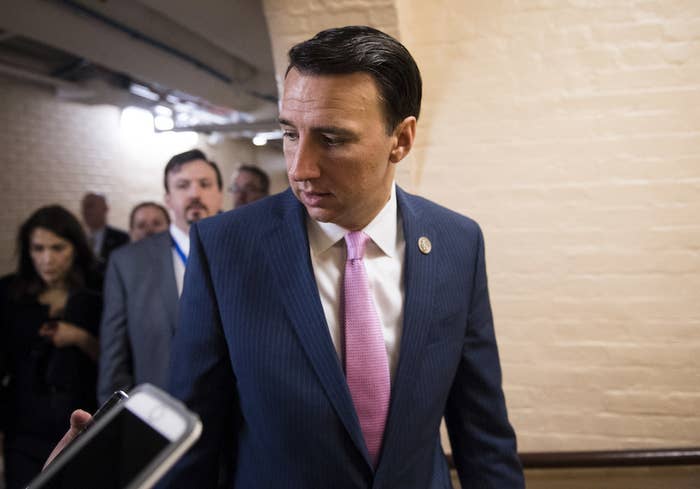
WASHINGTON — The Democratic takeover of the House of Representatives last year took out a wave of moderate Republicans who might have provided a core of resistance to President Donald Trump — but are instead watching ambivalently from the sidelines.
“What’s surreal is the historical context of impeachment … and the fact that I’m one term removed from something that does have a place in history,” said former Pennsylvania representative Ryan Costello, who added that he sometimes found himself squirming at the things Trump said or did. Costello had been more publicly critical than many of his colleagues were, and he walked away from Congress scolding the president for mocking center-right Republicans who lost their seats. (Costello memorably tweeted the day after Republicans lost the House "to lose bc of POTUS & have him piss on u. Angers me to my core.")
Being free of Washington means not having to worry if your job will hinge on one crucial impeachment vote. But it also means missing out on history.
Trump could become just the third US president to be impeached by the House of Representatives. “If they did and I were still in Congress, that would be, obviously, a career-defining type vote,” said Costello, one of 40 House Republicans who either retired or lost their seats in January. “I think anybody in public service wants to be part of momentous votes.”
It’s an irony of the regionalized US political system that partisan waves like the 2018 Democratic win usually make the victorious party more diverse — while the members of the losing party mostly lose moderates from swing districts and become more hardline.
“I’m sorry I’m not there,” said former New Jersey representative Leonard Lance, a self-described moderate who broke from party leadership on key issues like immigration and repeal of Obamacare. “I believe there needs to be more moderates on both sides and I see precious few.”
Now, the diminished cadre of Republicans in the House are, mostly, from safe districts where Trump is immensely popular — and crossing him could be career-ending. Not one House Republican publicly supports impeachment. (Michigan Rep. Justin Amash does, but he left the party this summer and is now an independent.) Republican leadership refers to impeachment as a “coup.”
A similar dynamic is in play in the Senate — which holds the key, theoretically, to actually removing a president. Swing-state senators running for reelection in 2020 — like Cory Gardner in Colorado, Susan Collins in Maine, Martha McSally in Arizona, and Joni Ernst in Iowa — are likely to be forced into those history-making votes, and the political costs within their own party of voting to impeach. Sen. Mitt Romney of Utah is not up until 2024, but he has signaled he may also be open to impeachment. They’ll try to avoid the fate of Sens. Bob Corker and Jeff Flake, two Republicans who became enemies of Trump and found themselves without a path to reelection in 2018.
Flake has kept up his critiques since retiring and is encouraging Republicans to drop their support for the president. But he doesn’t try to sugarcoat what will happen to them.
“I am living those consequences,” he wrote in a Washington Post op-ed. “I would have preferred to represent the citizens of Arizona for another term in the Senate. But not at the cost of supporting this man.”
Serving in the age of Trump means having to answer a constant barrage of questions about his actions — Republicans this week will be battered by reporters asking about impeachment, Trump’s infamous Ukrainian phone call, and withdrawing troops from Syria. Some tackle this head-on. Others take side entrances or fake phone calls. Some dodge questions to awkward results. “I haven’t seen the tweet” is a popular refrain.
Having to answer those kinds of questions when you don't know what is going on inside the White House puts Republicans in an even tougher position. Costello said he would try to answer cautiously when he didn’t have the facts, but this only led to accusations that he was being evasive.
Not every former member of Congress is conflicted about being on the sidelines of history.
“I’m glad I’m not dealing with this,” said one ex-member who represented a swing district and asked not to be named. “You’re placed in an impossible position here.”

